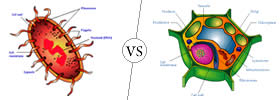Difference between Murder and Homicide
Key Difference: Legally, murder is the unlawful killing of another person with malice aforethought. Malice aforethought means that the murderer intended to kill the victim with his entire conscious mind. Homicide is an umbrella term that covers the act of one human killing another human, which could be lawful as well as unlawful. Homicide is not always a punishable act under the criminal law and the ruling depends on the type of homicide it is.
The terms murder and homicide are often used in the news when one person has killed another person. However, they do not give a clear indication of which means what. This often results in people that are not well versed with legal terms to confuse the two words. Murder is actually a type of homicide. Let’s differentiate the two.
 Legally, murder is the unlawful killing of another person with malice aforethought. Malice aforethought means that the murderer intended to kill the victim with his entire conscious mind. Murder entails that the person was in full control of his senses and that he wanted to kill the victim and may have premeditated the murder beforehand.
Legally, murder is the unlawful killing of another person with malice aforethought. Malice aforethought means that the murderer intended to kill the victim with his entire conscious mind. Murder entails that the person was in full control of his senses and that he wanted to kill the victim and may have premeditated the murder beforehand.
There are various degrees of murder, most commonly:
- First degree – crimes of exceptional premeditation and/or cruelty
- Second degree – killing with malice and no respect for the law, but with no prior deliberation
- Felony murder – an accidental death that occurs during the commission of a felony
Most societies consider murder as one of the most serious crimes a person is capable of and it is a crime worthy of the harshest of punishment. This usually entails a life imprisonment, or in some countries, the death penalty. The seriousness of the crime is measured by the intent of the murderer, with the direst punishment reserved for first degree.
 Homicide is an umbrella term that covers the act of one human killing another human, which could be lawful as well as unlawful. The term ‘homicide’ also includes killing someone with a purpose of doing an evil deed as well as accidently killing someone in self-defense. Homicide is not always a punishable act under the criminal law and the ruling depends on the type of homicide it is. Murder and manslaughter are considered as types of homicide. The term is often used when it is unsure how and why the victim has died. Once, that is proven and clear, it is then termed under words.
Homicide is an umbrella term that covers the act of one human killing another human, which could be lawful as well as unlawful. The term ‘homicide’ also includes killing someone with a purpose of doing an evil deed as well as accidently killing someone in self-defense. Homicide is not always a punishable act under the criminal law and the ruling depends on the type of homicide it is. Murder and manslaughter are considered as types of homicide. The term is often used when it is unsure how and why the victim has died. Once, that is proven and clear, it is then termed under words.
There are three types of homicide:
Justifiable homicide: This homicide is done for the greater good. This homicide is considered excusable under special circumstances that need to be extensively proven. A justifiable homicide includes killing a person that was a threat to the safety of society such as rapist, murderers, etc. Killing a person in self-defense is also considered as a justifiable homicide.
Criminal homicide: Criminal homicide is when a person unlawfully kills another person with the intention of doing harm to that person. Criminal homicide also includes unintentional killings, where an innocent dies by accident. In many jurisdictions, criminal homicide automatically calls for capital punishment. Murder, voluntary/involuntary manslaughter and assisting someone in suicide are all considered to be criminal homicide. However, the punishments for each differ depending on the circumstances.
State-sanctioned homicide: State-sanctioned homicide is when a person that is performing the killing is approved by the state to kill someone. This includes capital punishment, war and authority forces (i.e. police, FBI, sheriff, etc.).
Image Courtesy: albuquerquebedandbreakfasts.com, andrewdstine.com









Add new comment